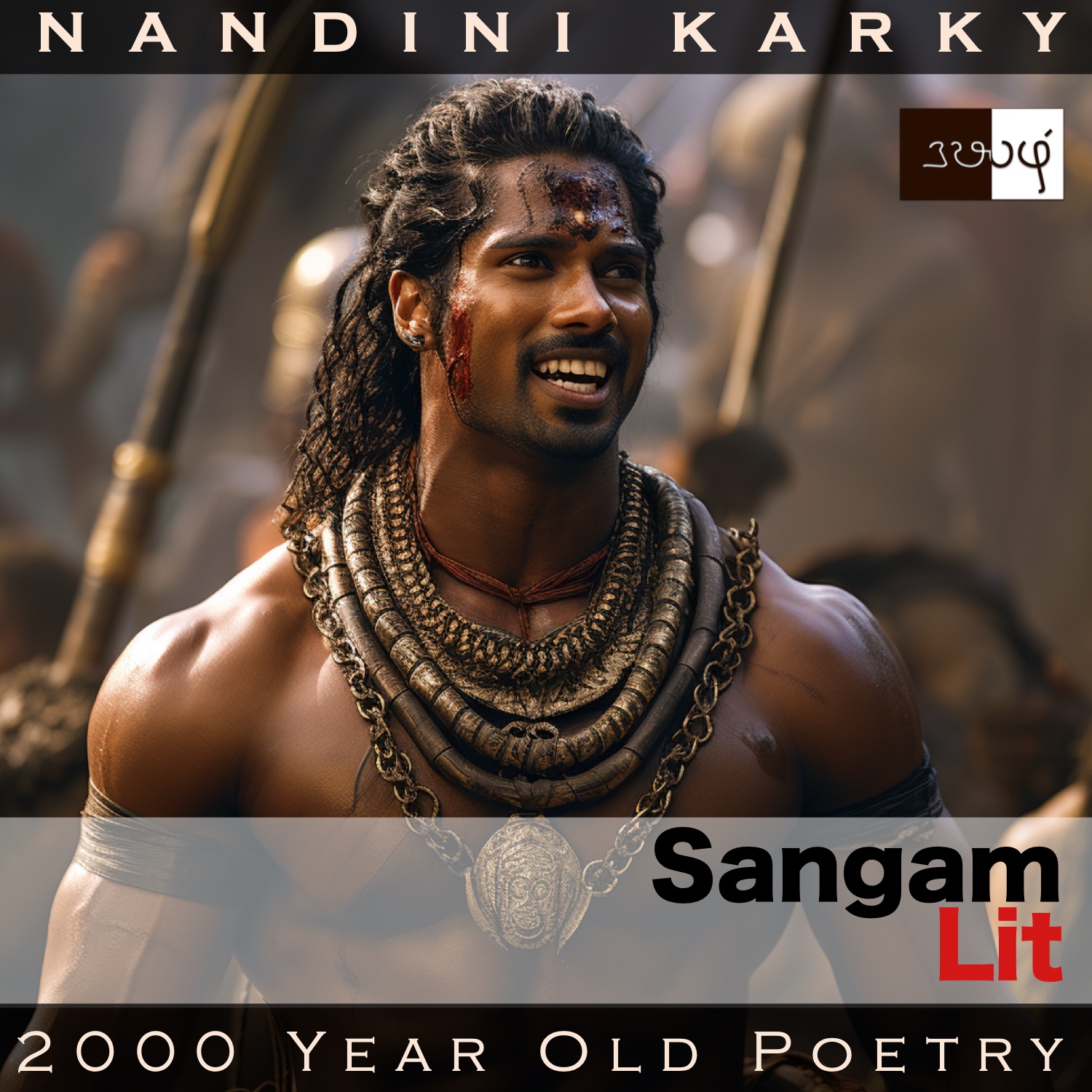Podcast: Play in new window | Download
Subscribe: Apple Podcasts | Spotify | Amazon Music | Android | iHeartRadio | TuneIn | RSS | More
In this episode, we perceive a dashing personality in action, as portrayed in Sangam Literary work, Puranaanooru 284, penned by the poet Orambokiyaar. The verse is situated in the category of ‘Thumbai Thinai’ or ‘Battle of two kings’ and talks about the exploits of a warrior in the battlefield.

‘வருகதில் வல்லே! வருகதில் வல்’ என
வேந்துவிடு விழுத்தூது ஆங்காங்கு இசைப்ப,
நூல் அரி மாலை சூடிக் காலின்
தமியன் வந்த மூதிலாளன்
அருஞ்சமம் தாங்கி, முன்னின்று எறிந்த
ஒரு கை இரும் பிணத்து எயிறு மிறையாகத்
திரிந்த வாய் வாள் திருத்தாத்
தனக்கு இரிந்தானைப் பெயர் புறம் நகுமே.
A song about a Sangam soldier’s defence and offence in the battlefield. The poet’s words can be translated as follows:
“‘Come speedily! Come speedily!’ resounded the call of messengers sent by the king here and there. Heeding the call, wearing a string-tied garland, that man from an ancient clan came walking on foot all alone. He blocks the surge of enemies in the furious battle. Then, upon the tusk of a huge elephant, one killed by his sword, he straightens the sword’s bent blade and seeing one who fears him run away showing his back, stands there laughing uproariously!”
Let’s delve into the details. The poet starts by talking about the manner in which kings in Sangam era sent out messengers, who shouted aloud the call for warriors to come and join the battle about to unfold. Hearing this, those who belonged to ancient warrior clans would join up, lending their support to the king’s cause. Here, the poet zooms on one such person, who comes alone, on foot that too, and joins the fight. Even though he’s on foot, he seems to have the strength and strategy to obstruct the enemy’s advance, the poet spotlights, and then shows us how this warrior has felled a huge elephant and stands there straightening his bent sword upon the tusk of that fallen giant. Finally, seeing an enemy run away in fear, showing his back, this warrior laughs heartily, the poet concludes.
Sounds like this warrior is a one-man army! Such swag, such style, the poet brings to this character with his words. The tone of this verse reminded me of an aspect of Tamil movies and that is the ‘hero introduction scene’, where the protagonist, most often a male, is presented to the audience in the beginning of the movie, showcasing his style and courage. Could this trend be inspired by this age-old tradition of showcasing such a warrior’s exploits in the battlefield?




Share your thoughts...